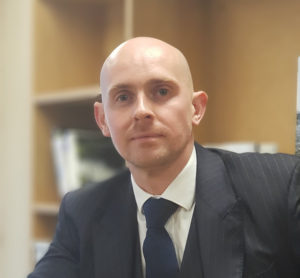SM (Algeria) v Entry Clearance Officer, UK Visas Section
A JUDGMENT OF TWO PARTS: a non-lawyer’s guide (2/2)
Susanna is a beautiful seven year old girl. Abandoned at birth outside an Algerian hospital she was placed in the long-term care of Mr and Mrs M, a French couple living and working in the UK. Unable to conceive their own child they decided to travel to Algeria to be assessed for the suitability as guardians under the Islamic kefalah system. Following the transfer of legal custody and parental responsibility to Mr and Mrs M, Susanna applied for admission to the UK as a family visitor. This was refused and Susanna reapplied, this time under the Immigration (EEA) Regulations 2006 as the family member of Mr and Mrs M. The application was refused on the basis that the Algerian guardianship was not recognised as an adoption under UK law, and that Mr and Mrs M had not made an application under s 83 of the Adoption and Children Act 2002 for Susanna to be adopted once here. She appealed to the First-tier tribunal who in a reserved determination dismissed the appeal. Susanna then appealed to the Upper Tribunal which sat as a legal panel. In a reserved determination the panel dismissed the appeal with reference to the 2006 EEA Regulations but allowed it on the basis of Article 8 of the ECHR. Unhappy with that decision the Entry Clearance Officer successfully appealed to the Court of Appeal which held that the Upper Tribunal was wrong to allow the appeal on Article 8 ECHR grounds and that Susanna could not qualify as either a family member or, in the alternative, an extended family member under the 2006 EEA Regulations. Thus it was that the matter came before the Supreme Court.
Part 2. Kefalah guardianship: is blood really thicker than water ??
In Islam adoption is prohibited. However, the right is accorded a special institution: Kefalah or “legal care”. In Islamic countries kefalah is defined as a voluntary undertaking to provide for a child and take care of his or her welfare, education and protection. Kefalah represents the Islamic alternative to adoption.
There are three main features which distinguish kefalah from western adoption: non-severance of family ties; non-transference of inheritance rights; and no change in the child’s family name. Although a child adopted under kefalah has no legal right to inherit from the adoptive family, in practice such a child is assigned an inheritance through testamentary succession.
Kefalah does not permit discrimination between kefalah children and those born to the household. It is the highest form of protection and alternative care for orphans and abandoned children in Islam. It also represents a form of social security for these children. More significantly kefalah’s unlimited nature results in a permanent bonding relationship between the child and the family in question. The child becomes a part of the family and is raised in the same manner as the natural children of the family. This is important since kefalah is seen not only as a meritorious deed, but also as a religious duty. However, over time, the emphasis is on providing a family-based alternative care for orphans and other abandoned children because they are destitute and require proper care and attention for proper overall development. Kefalah is, in the main, a primary moral obligation for Muslims towards such children. The principle of the best interests of the child remains the primary focus in any circumstance. Islam places a great premium on raising the child within a family environment, the maintenance of one’s identity, traceable to one’s natural parents, occupies a more central position.
There are three approaches to international kefalah, determined by state law and practice. Firstly, countries which strictly do not recognise or permit international kefalah (e.g. Egypt, Iran, Mauritania); secondly, countries that deal with international kefalah on a case-by-case basis (e.g. Algeria, Morocco, Jordan, Pakistan); and thirdly countries that provide legislation on adoption or the conversion of kefalah into adoption, where relevant (e.g. Tunisia, Indonesia).
Kefalah, as an alternative care for abandoned children in Islamic countries, is not incompatible with international instruments governing the recognition of adopted children in the European Union. European Union States, which are signatories to the 1993 Hague Convention on Intercountry Adoption, recognise kefalah children as family members of their legal guardians even though these children are not treated as adopted children under their national law. This practice allows for the child to develop family ties with their legal guardians and become integrated into society in which their legal guardians reside. For example France and Italy which have a sizeable proportion of those of the Muslim faith, recognise children who are in care of their legal guardians under the kefalah system as being family members of their guardians.
Mr and Mrs M are French nationals. Under French law legal guardians are not able to adopt children placed in their care under the kefalah system but their legal system allow for such children to move to and live with their legal guardians and to become French citizens.
This case was not concerned with the Immigration Rules but only entry and residence under the Citizens Directive and the 2006 EEA Regulations. The question for the Court was whether Susanna is a direct family member or an extended family member or (as the Court of Appeal held) neither under EU law?
The Supreme Court had no hesitation in concluding that Susanna is an extended family member as defined. The Court explained that the problem in this case was the use of the word ‘relative’ in the Regulations instead of the phrase ‘family member’ which the Citizens Directive uses. The latter is wider than the former and can be interpreted to include those who are non-blood related and who fall within the broad concept of being a member of the family. Susanna, being a dependent of Mr and Mrs M in Algeria and a member of their household clearly fell within this definition.
UK legislation relating to adoption is relevant to ensure that a child is not the victim of exploitation, abuse or trafficking or that the birth family has abandoned a claim to the child. But just because the transfer of parental responsibility does not meet the stringent requirements of UK adoption law does not mean that the relationship cannot be recognised. The statutory duty to act in the best interests of the child is a primary consideration. It requires an assessment of all of the relevant facts including the child’s admission to the UK is in her best interests. This evaluation would include the need to protect all children from the dangers of exploitation, abuse and trafficking. Decision-makers would also have to consider that to refuse such a child admission to the UK could act as a powerful deterrent to the exercise of the right of free movement under the Citizens Directive. This is precisely what happened in Susanna’s case. Whilst Mr M was forced to return to the UK to resume his employment, Mrs M had to abandon her employment and he right to live with her husband to remain living with Susanna in Algeria.
The Court’s conclusion that Susanna is an extended family member however did not dispose of the appeal. That is because if in fact Sarah qualifies as a direct family member then she gets an automatic right of entry and residence into the UK under the Citizens Directive. This question was not so easy to resolve. Clearly biological children are direct family members, as are children who have been lawfully adopted in accordance with the requirements of the host country. Whilst the European Commission has indicated that children who are in the custody of a permanent legal guardian, including long-term foster children, may also fall under this definition there is no case law on this. The case law that there is seems to suggest that the idea of who is a direct family member is a uniform concept which should have the same meaning throughout the European Union and that as such individual members cannot impose their own definition. If, for example, the UK refused to recognise as direct descendants kefalah children whilst France and Italy did then it would not only place barriers to free movement for European nationals like Mr and Mrs M who have such children, but would also be discriminatory on grounds of religion and culture.
On the other hand the Court had concerns that if the definition of direct descendants was to be interpreted broad enough to include kefalah children, it might in some cases be taken advantage of to create opportunities for exploitation, abuse and trafficking in children, or might lead to children being admitted and placed in homes that would be rejected as unsuitable under UK law.
In the end the Supreme Court considered that there was no clear answer and decided to ask the European Court of Justice to give guidance on three questions:
(1) Is a child who is in the permanent legal guardianship of a Union citizen or citizens, under “kefalah” or some equivalent arrangement provided for in the law of his or her country of origin, a “direct descendant” within the meaning of the Citizens Directive?
(2) Can other provisions in the Citizens Directive be interpreted so as to deny entry to such children if they are the victims of exploitation, abuse or trafficking or are at risk of such
(3) Is a member state entitled to inquire, before recognising a child who is not the direct blood-related descendant of the EEA national as a direct descendant into whether the procedures for placing the child in the guardianship or custody of that EEA national was such as to give sufficient consideration to the best interests of that child?
Commentary
To conclude that the term ‘direct descendants’ includes children who have been placed in the long-term custody of guardians, which could include fostering, would be welcomed in many quarters as a positive development of the law in this respect. It would provide a much-needed compromise for children like Susanna who for religious and cultural reasons is unable to be adopted, let alone in accordance with the principles of the Hague Convention. As important as safeguards are, indeed they must always be of primary consideration, Member States also need to recognise that nationals like Mr and Mrs M are through no fault of their own forced into invidious positions, having to choose between rights of free movement on the one hand and the right to family reunification on the other. A balance must now be struck.
The European Court of Justice has been asked to expedite the case. This is likely to be one of the last cases from the UK to the CJEU before Brexit. Whether things change thereafter will remain to be seen.
Tony Muman and Katie Wilkinson appeared for Susanna, together with Jessica Smeaton and led by Ramby de Mello. Lisa Tang at David Tang and Co. Solicitors is Susanna’s solicitor.
For any further enquiries please contact Tony and Katie’s clerks on 0121 237 6035 or clerks@43templerow.co.uk






